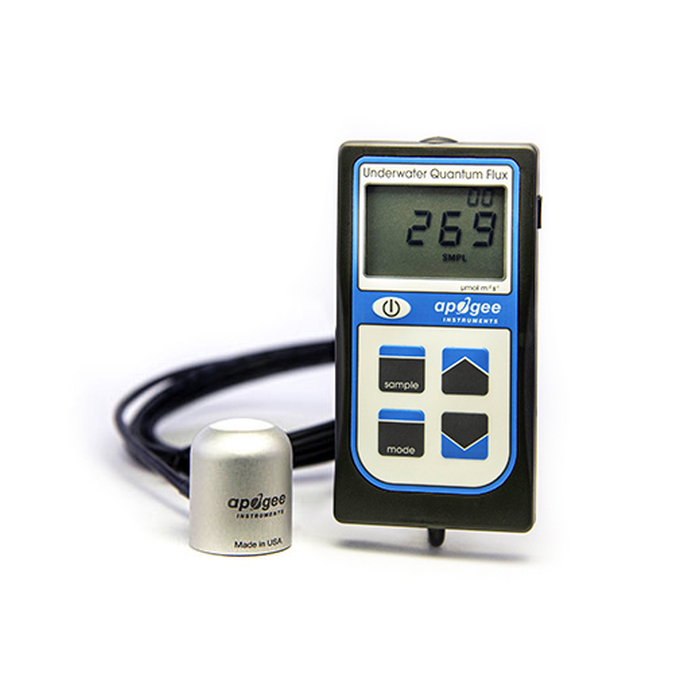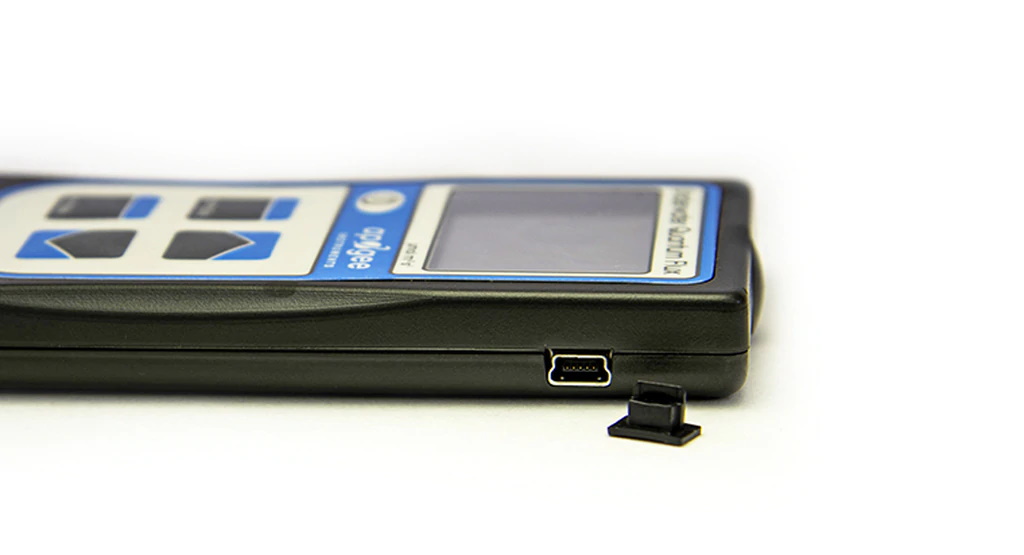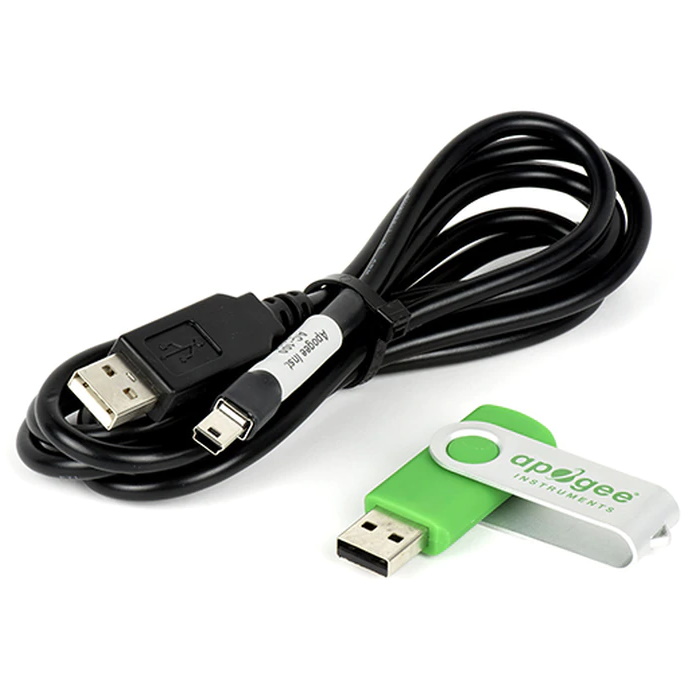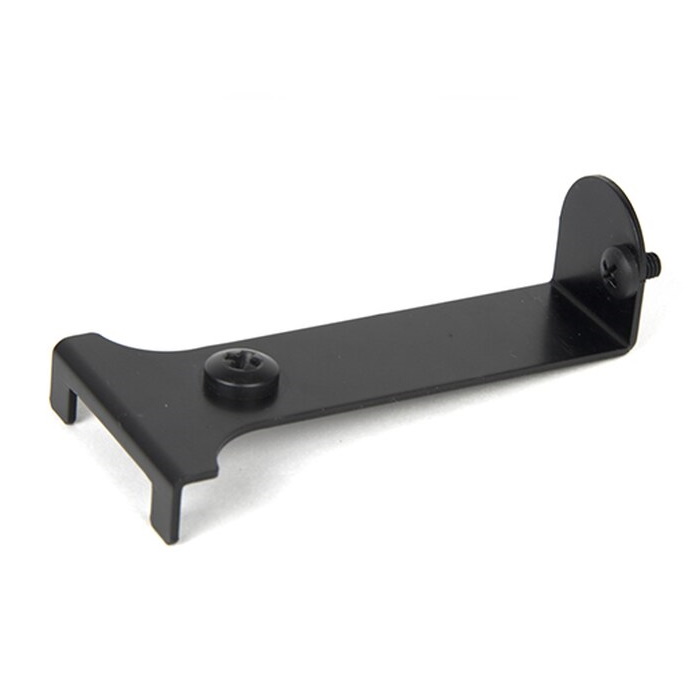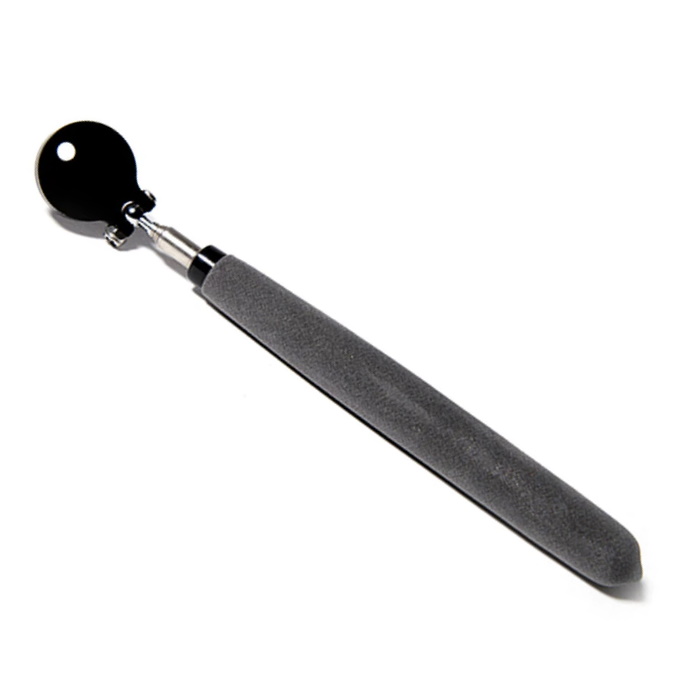MQ-650: ePAR Underwater Meter
Apogee’s newest, cutting-edge ePAR sensor, an upgrade to the ePFD sensor and designed to measure the newly defined 400-750 nm ePAR radiation range.
The MQ-650 ePAR meter is designed for underwater extended PAR measurements (400-750 nm) and already applies the sensor's immersion effect correction factor to the meter readings through firmware. The meter provides excellent measurements under all light sources, including LEDs. The meter consists of a waterproof quantum sensor attached via waterproof cable to a handheld meter. The waterproof sensor incorporates a blue-enhanced silicon photodiode and custom optical filters with a rugged, anodized aluminum body with acrylic diffuser. The underwater quantum sensor is typically used in salt water aquariums where corals are grown. Note: The handheld meter is not waterproof, only the sensor and cable are waterproof.
The meter has a sample and log mode, and will record an integrated daily total in mol m-2 d-1. Sample mode will record up to 99 manual measurements. Log mode will power the meter on/off to make a measurement every 30 seconds. Every 30 minutes the meter will average the sixty 30 second measurements and record the averaged value to memory. The meter can store up to 99 averages, once full it will start to overwrite the oldest measurement with new ones. An integrated daily total will be recorded from the 48 averaged measurements (making a 24 hr period). Sample and log measurements can be reviewed on the LCD display or by downloading the data to a computer, however, the integrated daily total can only be viewed by downloading the data to a computer. Downloading data to a computer requires the AC-100 communication cable (a standard USB cable will not work) and ApogeeAMS software.
How is the MQ-650 different from previous Apogee quantum sensors?
The MQ-650 performs exactly the same underwater as the MQ-610, but the MQ-650 simply multiplies the PAR reading by 1.25 to account for the immersion effect. The MQ-650 is an ePAR sensor (SQ/MQ-610 Series) with a spectral range of 400 to 750 nm ± 5 nm, which can be seen in the graph below. The cutting-edge spectral response of this meter measures the newly confirmed far-red photosynthetic wavelengths compared to our full-spectrum models that measures traditional PAR (400-700 nm).
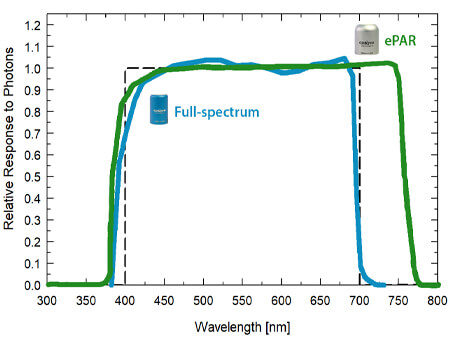
Where is the MQ-650 used?
The MQ-650 is used to measure incoming PPFD in aquatic environments.
Tilleggsinformasjon
| Miljø | |
|---|---|
| Måleparameter |
Spesifikasjoner
Calibration Uncertainty: ± 5 %
Measurement Range: 0 to 4000 µmol mˉ² sˉ¹
Measurement Repeatability: Less than 0.05 %
Long-term Drift (Non-stability): Less than 2 % per year
Non-linearity: Less than 1 % (up to 4000 µmol mˉ² sˉ¹)
Response Time: Less than 1 ms
Field of View: 180˚
Spectral Range: 400 to 750 nm ± 5 nm ( wavelengths where response is greater than 50 %)
Directional (Cosine) Error: Less than ± 5 % at 75˚ zenith angle and 10 % from 412 to 682 nm ± 5 nm
Azimuth Error: Less than 0.5 %
Tilt Error: Less than 0.5 %
Temperature Response: -0.11 ± 0.04 % Cˉ¹
Uncertainty in Daily Totals: Less than 5 %
Detector: Blue-enhanced silicon photodiode
Housing: Anodized aluminum body with acrylic diffuser
IP Rating: IP68
Operating Environment: 0 to 50 C, less than 90 % non-condesing relative humidity up to 30 C, less than 70 % non-condensing relative humidity from 30 to 50 C; separate sensors can be submerged in water up to depths of 30 m
Meter Dimensions: 126 mm length, 70 mm width, 24 mm eight
Sensor Dimensions: 30.5 mm diameter, 37 mm height
Mass: 180 g
Cable: 2 m of two conductor, shielded, twisted-pair wire; additional cable available; TPR jacket
Warranty: 4 years against defects in materials and workmanship
Manufactured: Made in the USA
